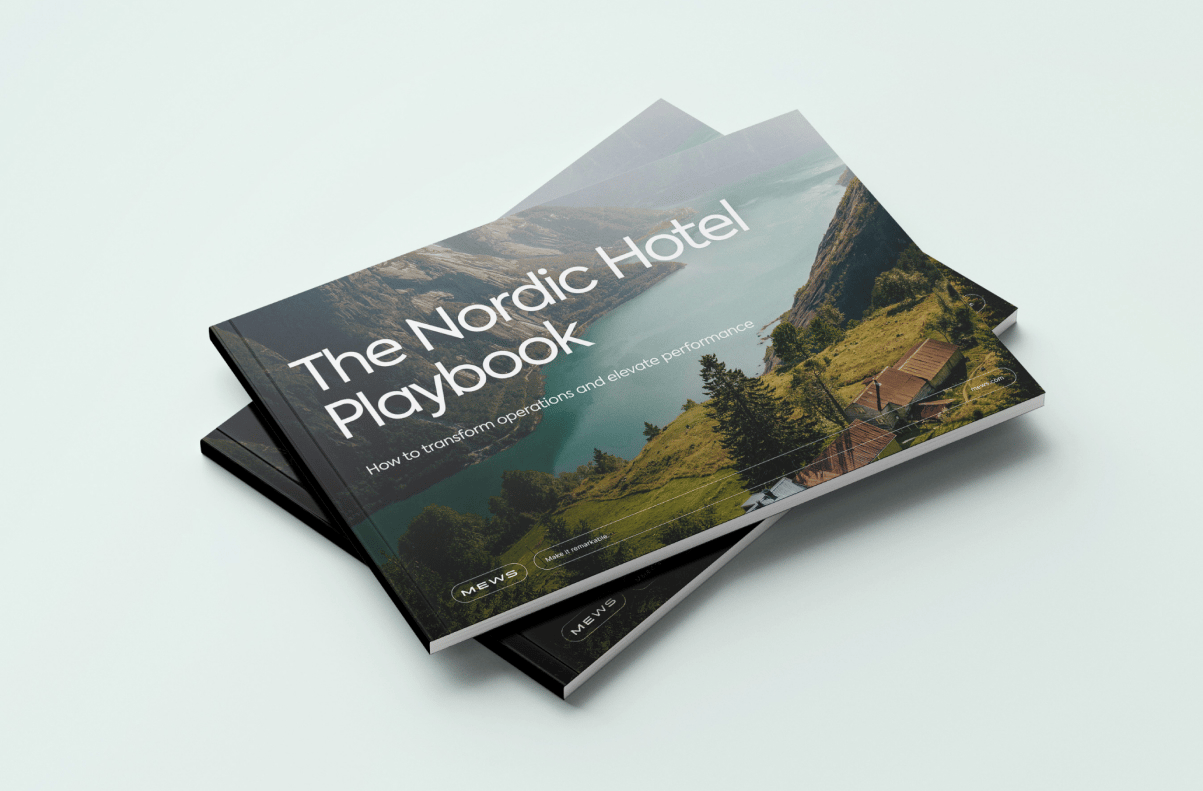Table of contents
Hotel segmentation is at the heart of any successful hotel operation. It informs marketing strategy, helps tailor offers and reveals growth opportunities while optimizing revenue management strategy and profitability. By identifying where the business is coming from and what motivates guests to complete a purchase, you can better define effective pricing strategies and target your offer to meet their needs.
We'll look at hotel market segmentation in more detail – its benefits, the most common segments, steps to implement guest segmentation, and how smart hotel tech can make this possible.
| Table of contents |
What is hotel market segmentation?
Hotel market segmentation is the process of grouping guests into various categories based on shared characteristics and behavior. It helps to define revenue management strategies and better understand guest preferences, needs and demands. From there, you can tailor marketing strategies, services and offerings to meet the requirements of each segmented group.
Learn more about hotel guest profiles and how to create them.
What are the benefits of hotel market segmentation?
Using segmentation, hotels can optimize their operations, carry out targeted marketing efforts, enhance the customer experience through personalization and maximize revenue by creating targeted offers and experiences. You can also identify areas for growth and unexploited business opportunities within your market.
It enables properties to differentiate themselves from the competition by catering to specific audiences, helping to position themselves better for specific traveler profiles, thus creating a competitive advantage. You can also use this information to better forecast and adjust rates and budgets according to various target profiles.
What are the most common hotel market segments?
Hotel market segments may vary based on your property type, but there are five main categories.
Wholesale
The wholesale segment refers to those leisure guests or FITs (free independent travelers) who book through a wholesaler with special negotiated rates. The wholesalers get better rates by booking bulk room blocks, which they resell to third-party sites like tour companies, production crews, and both online and offline travel agencies.
Transient
Transient travelers are FITs or business travelers who typically book last minute directly through the hotel, travel agent, or an OTA. They may be walk-in guests, same-day bookings or guests who book a few days in advance. Find out the advantages of transient business.

Corporate negotiated
Corporate negotiated rates refer to corporate travelers with agreed-upon rates settled in advance by hotels and travel management companies. Hotels usually give these special rates in exchange for the business committing to a minimum number of nights per year.
Group
The group segment refers to guests traveling in a group that has blocked several rooms in advance at a special rate. Groups usually reserve at least six to ten rooms per night – they may be corporate, family, special events, MICE, and other types of groups. Find out how to attract group bookings to your hotel.
Other
The “other” segment is used for the rest of the guests. They are lumped together and could be military, government and complimentary rooms, employee or other industry rates.
6 steps to implement guest segmentation at your hotel
Now that you know what market segmentation is, let's explore how to implement this strategy in your property.
Collect Data
No strategy can be complete without collecting data first, usually from PMS analytics. The purpose is to understand who your guests are, their motivations, travel patterns, length and purpose of stay, requested services and upsells, preferred channels, etc.
Identify existing groups and those groups your hotel wants to reach
Once you understand who your guests are, you can identify patterns and adjust the offer accordingly. You can also determine which groups you're not reaching and how to do it. Divide them into trackable segments such as business, leisure, corporate, wholesale, or OTAS. Based on the volume in each group, you can decide whether to break them down further into subgroups.
Channel segmentation
Find out the booking method your different target segments are using. Are they reserving through an OTA and direct channels? Are they walk-ins or working with travel agents? By understanding where your guests are coming from, you can work on optimizing channels to attract different audiences.
Adapt marketing strategies to target audience
Once you've identified target audiences and where they're booking, you can adapt marketing strategies to help attract your ideal guests. This way, you can reach guests with relevant messaging, promotions and offers, increasing the possibility of engaging your target audience.

Implement pricing strategies
Through a strategic approach to segmentation, hotels can maximize revenue potential and pricing strategies to appeal to specific segments. Hotels can then adjust their pricing strategies to focus efforts and resources on attracting and retaining the most valuable customers with the highest ADR.
Analyze and refine
Once you've put these strategies into practice, you can analyze the results and decide which segments are worth focusing on – usually, those that generate the most revenue. You can implement different offers and customize them for each target audience, changing deals and prices to be more attractive to each target profile. It's all about trial and error.
How can Mews help your hotel with segmentation?
You can rely on hospitality technology like Mews Property Management Software to provide reporting and analysis needed to make data-driven decisions. It will help you understand each segment's performance based on historic data and target figures. You can also create guest profiles to understand where to focus your business and easily track KPIs to spur growth.
Conclusion
We've looked at hotel market segmentation, its benefits, the most common segments, and how to implement it in your hotel. The goal is to empower hotels to go on a deep dive into their ideal customer profile. That way, you can better target offers, optimize operations and improve your bottom line by attracting and retaining guests.

Author
Eva Lacalle
Eva has over a decade of international experience in marketing, communication, events and digital marketing. When she's not at work, she's probably surfing, dancing, or exploring the world.
Hospitality hot takes straight to your inbox
Sign up to our monthly newsletter for industry insights, product news, partner updates and more.

The Nordic Hotel Playbook
Download now


.webp)